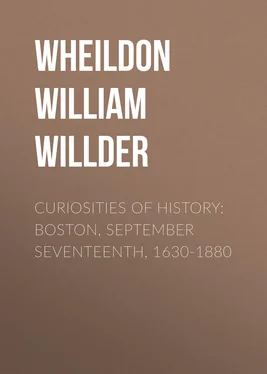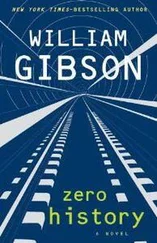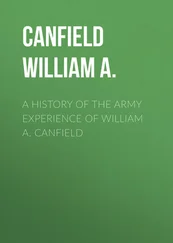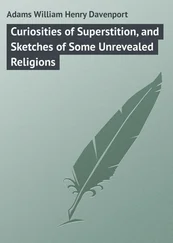William Wheildon - Curiosities of History - Boston, September Seventeenth, 1630-1880
Здесь есть возможность читать онлайн «William Wheildon - Curiosities of History - Boston, September Seventeenth, 1630-1880» — ознакомительный отрывок электронной книги совершенно бесплатно, а после прочтения отрывка купить полную версию. В некоторых случаях можно слушать аудио, скачать через торрент в формате fb2 и присутствует краткое содержание. Жанр: Путешествия и география, История, foreign_edu, foreign_antique, foreign_prose, на английском языке. Описание произведения, (предисловие) а так же отзывы посетителей доступны на портале библиотеки ЛибКат.
- Название:Curiosities of History: Boston, September Seventeenth, 1630-1880
- Автор:
- Жанр:
- Год:неизвестен
- ISBN:нет данных
- Рейтинг книги:4 / 5. Голосов: 1
-
Избранное:Добавить в избранное
- Отзывы:
-
Ваша оценка:
- 80
- 1
- 2
- 3
- 4
- 5
Curiosities of History: Boston, September Seventeenth, 1630-1880: краткое содержание, описание и аннотация
Предлагаем к чтению аннотацию, описание, краткое содержание или предисловие (зависит от того, что написал сам автор книги «Curiosities of History: Boston, September Seventeenth, 1630-1880»). Если вы не нашли необходимую информацию о книге — напишите в комментариях, мы постараемся отыскать её.
Curiosities of History: Boston, September Seventeenth, 1630-1880 — читать онлайн ознакомительный отрывок
Ниже представлен текст книги, разбитый по страницам. Система сохранения места последней прочитанной страницы, позволяет с удобством читать онлайн бесплатно книгу «Curiosities of History: Boston, September Seventeenth, 1630-1880», без необходимости каждый раз заново искать на чём Вы остановились. Поставьте закладку, и сможете в любой момент перейти на страницу, на которой закончили чтение.
Интервал:
Закладка:
At a session of the General Court, at Boston, the 10th of the eight month, 1648, “For preventing ferry men’s Damage by Persons not paying, &c., it shall be lawful for any Ferry man to demand and Receive his due before his Boat put off from the Shore, nor shall he be bound to pass over any that shall not give satisfaction, & any Ferry Man may refuse any wampum not stringed or Unmerchantable and such persons whether Horse or Foot which are passage free by Order of the Court must show something sufficient for their Discharge, or else pay as others do, except Magistrates and Deputies, &c., who are generally known to be free.”
And again, Oct. 18, the Court ordered that “all ‘payable peag’ should be ‘entire without breaches, both the white and the black, suitably strung in eight known parcels, 1 d. , 3 d. , 12 d. , 5 s. , in white; and 2 d. , 6 d. , 2-6 d. , and 10 s. , in black.’ The Court also ordered that for transporting officers in the colony service, the ferrymen should be allowed £4 per annum for the past, and £6 per annum for the time to come.”
“Peag,” or “wampum,” or “wampumpeag,” simply means stringed shells of a peculiar kind, or Indian money; and this, it seems, came early into use, as Hubbard says, “The people of New Plymouth, in the year 1627, began trade with the Dutch at Manhados, and there they had the first knowledge of Wampumpeag, and their acquaintance therewith occasioned the Indians of those parts to learn to make it.” Hutchinson thinks the New England Indians, prior to this time, had not “any instrument of commerce;” and speaks of the Narragansetts as coining money, making pendants and bracelets, and also tobacco pipes. There seems, however, to have been among the Massachusetts settlers some other kinds of money in use, as, in 1635, the court ordered that brass farthings shall be discontinued, and that musket-balls shall pass for farthings.
Penny Ferry, across the Mystic River, where the Malden Bridge now is, was established by the town in April, 1640, when it was voted, “That Philip Drinker should keep a ferry at the Neck of Land, with a sufficient boat, and to have 2 d. a single person, and a penny a piece when there go any more.” It was not a source of any profit to the town for many years.
In 1651, the Penny Ferry was granted for a year to Philip Knight, who appears to have had the income of it for taking care of it, he agreeing “to attend the ferry carefully, and not to neglect it, that there be no just complaint.”
In 1698, Judge Sewall makes the following entry in his diary: “February 19, I go over the ice and visit Mr. Morton, who keeps his bed. 21st, I rode over to Charlestown on the ice, then over to Stower’s (Chelsea), so to Mr. Wigglesworth. The snow was so deep that I had a hard journey—could go but a foot pace on Mystic river, the snow was so deep. 26th, a considerable quantity of ice went away last night, so that now there is a glade of water along Governor’s island, about as far as Bird island. 28th, a guard is set upon Charles River to prevent persons from venturing over on the ice for fear of drowning; and the ferrymen are put upon cutting and clearing the ice, which they do so happily, that I think the boat passeth once a day.”
The use of the ferry was confined to foot-passengers entirely at first; and afterwards, when larger boats were built, chaises were allowed, as the common riding or travelling vehicle of the time. It would seem that double tolls had been demanded on certain days; and in 1783, when the names of the ferrymen were presented to the town for approval, it was agreed, on their not taking double ferriage on those days, and their faithful promise to the same, to approbate them. It seems almost wonderful—but it is a fact—that this ferry was kept up as the sole means of communication, excepting the journey around through Roxbury and Cambridge, for more than one hundred and fifty years. It was over this ferry that the people came to Boston to assist in the fortification upon Corne Hill (Fort Hill) in May, 1632, and at other times for similar purposes. It was over this ferry also, on the 18th of April, 1689, that the troops came, in the time of the Andros Rebellion, to assist in maintaining the rights of the people at this early period in the history of the town. There were twenty companies in Boston, and it was said about fifteen hundred men at Charlestown that could not get over. Andros was imprisoned, the first charter of the colony dissolved, and Thomas Danforth came in as deputy-governor. On many other occasions during the long period of its continuance, and in cases of fire in Boston, the ferry had large duties to perform; and it is wonderful how it was ever made to answer its purposes for so long a time.
1741.—Oldmixon, in his “History of the British Empire in America” (“The History of New England,” as a part of it is called), says, “Charlestown, the mother of Boston, is much more populous than Cambridge, and exceeds it much in respect of trade, being situated between two rivers, Mystic River and Charles River, and parted from Boston only by the latter, over which there is a ferry so well tended that a bridge would not be much more convenient, except in winter, when the ice will neither bear nor suffer a boat to move through it. Though the river is much broader about the town, it is not wider in the ferry passage than the Thames between London and Southwark. The profits of this ferry belong to Harvard College in Cambridge, and are considerable. The town is so large as to take up all the space between the two rivers.”
In 1763, April, the running of a stage-coach was commenced between Boston and Portsmouth, N.H., once a week,—out on Friday, and return on Tuesday. It is said, that, “owing to the trouble of ferrying the stage and horses over Charles River, they were kept at Charlestown, at the sign of the Three Cranes.” The practice with this, and very likely other stage-lines, probably continued until the bridge was built.
The memorable night, April 18, 1775, when Paul Revere crossed Charles River, near the ferry, is of course well remembered. During the occupation of Boston Harbor by the British navy, the boats of the ferry were drawn up alongside the men-of-war every night at nine o’clock, and there was no passing after that hour; but it seems that Revere kept a boat of his own at the north end, and employed two men to row him across, “a little to the eastward where the ‘Somerset’ man-of-war lay.” He landed at Charlestown below the ferry, and says, “I told them what was acting, and went to get me a horse,” and then pursued his momentous ride to Lexington.
Imagine the continuance of this ferry, as the usual means of crossing the river between Boston and Charlestown, for a period of more than one hundred and fifty years! and all this time probably without the use of sails, as the stream at this point was very narrow and the currents very strong, and certainly without the power of steam, now so generally applied to ferries all over the country. There was, no doubt, in the winter season, a good deal of passing on the ice. The Winnisimmet Ferry, for many years prior to the introduction of steam, was operated by the use of large sail-boats for foot-passengers only.
It is said that the Indian name of Charles River was Quimobequin, and that on Capt. Smith’s map of 1614, it is called Massachusetts; and Hutchinson says, “Prince Charles gave the name of Charles river to what had been before called Massachusetts river.” Smith himself says he called it Charles River; still Hutchinson may be right.
III.
Интервал:
Закладка:
Похожие книги на «Curiosities of History: Boston, September Seventeenth, 1630-1880»
Представляем Вашему вниманию похожие книги на «Curiosities of History: Boston, September Seventeenth, 1630-1880» списком для выбора. Мы отобрали схожую по названию и смыслу литературу в надежде предоставить читателям больше вариантов отыскать новые, интересные, ещё непрочитанные произведения.
Обсуждение, отзывы о книге «Curiosities of History: Boston, September Seventeenth, 1630-1880» и просто собственные мнения читателей. Оставьте ваши комментарии, напишите, что Вы думаете о произведении, его смысле или главных героях. Укажите что конкретно понравилось, а что нет, и почему Вы так считаете.












